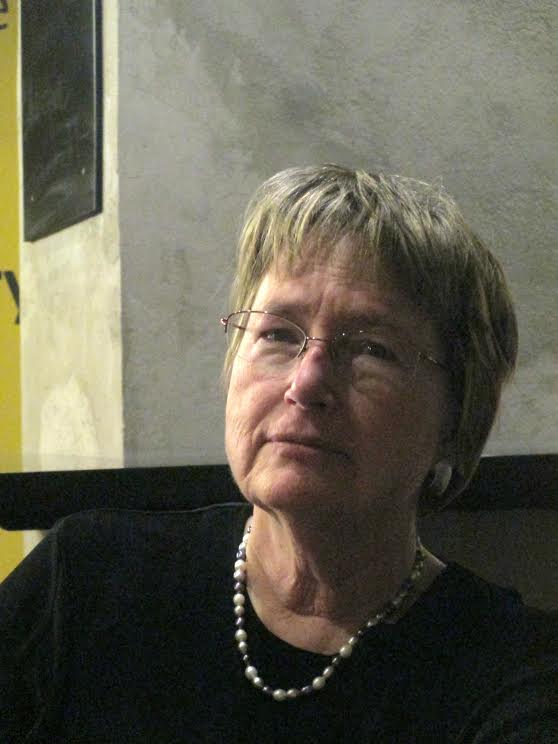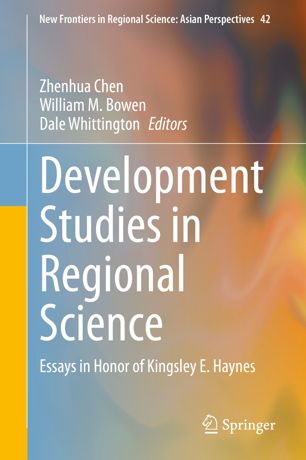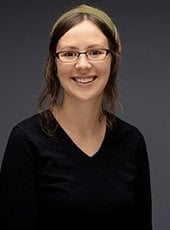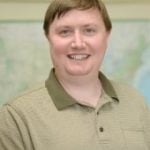 Professor Emerita Mary Durfee (SS) published a commentary “Existential Security: Lessons from the Pandemic and Arctic,” on the website for the Arctic Institute in Washington, D.C.
Professor Emerita Mary Durfee (SS) published a commentary “Existential Security: Lessons from the Pandemic and Arctic,” on the website for the Arctic Institute in Washington, D.C.
 Adam Wellstead co-authored a piece with Paul Cairney titled Who can you trust during the coronavirus crisis? based off their paper, The Role of Trust in Policymaking.
Adam Wellstead co-authored a piece with Paul Cairney titled Who can you trust during the coronavirus crisis? based off their paper, The Role of Trust in Policymaking.
Trust is essential during a crisis. It is necessary for cooperation. Cooperation helps people coordinate action, to reduce the need for imposition. It helps reduce uncertainty in a complex world. It facilitates social order and cohesiveness. In a crisis, almost-instant choices about who to trust or distrust make a difference between life and death.
Shan Zhou (SS) and Professor Emeritus Barry Solomon (SS) recently published “Do renewable portfolio standards in the United States stunt renewable electricity development beyond mandatory targets?” in the journal Energy Policy. This article explores the question of whether the renewable portfolio standard (RPS) serves as a floor or a cap on renewable electricity capacity deployment in the U.S.
A panel dataset from 1998 to 2017 is constructed for 28 states that have adopted a mandatory RPS in this timeframe. Using hybrid random effects negative binomial regression models, the authors find that when constrained by renewable electricity potential capacity, more stringent RPSs are significantly associated with a lower level of non-RPS related renewable electricity capacity additions. This negative effect of the RPS on beyond RPS compliance renewable electricity development is weakened by the abundance of renewable energy resources.
 Richelle Winkler (SS) recently published “Exporting Consumption: Lifestyle Migration and Energy Use” in the journal Global Environmental Change. This paper is the result of her collaboration with Costa Rican colleagues during her sabbatical year. The article is available here.
Richelle Winkler (SS) recently published “Exporting Consumption: Lifestyle Migration and Energy Use” in the journal Global Environmental Change. This paper is the result of her collaboration with Costa Rican colleagues during her sabbatical year. The article is available here.

Barry Solomon (SS) and Fei Li published Environmental equity and nuclear waste repository siting in East Asia” in Chen, Z., Bowen, W., Whittington, D, eds. Development Studies in Regional Science: Essays in Honor of Kingsley E. Haynes (New York, Springer, 2020), pp. 147-166.

Chelsea Schelly (SS) with Jim Letzelter (GenMetrix LLC) have published “Examining the Key Drivers of Residential Solar Adoption in Upstate New York” in Sustainability.


We return to the College of Sciences and Arts (CSA) for this week’s Deans’ Teaching Showcase nomination. David Hemmer, CSA dean has selected the team of Richelle Winkler and Don Lafreniere, both associate professors in the Social Sciences Department.
Social Sciences Chair Hugh Gorman recommended the two to Dean Hemmer for their “creative, out-of-the-box approach to providing students with an experiential/service-learning opportunity.”
Gorman described how their collaboration benefitted students in both classes:
“In Fall 2019, students in two classes, Dr. Winkler’s ‘SS4700 Communities and Research’ and Dr. Lafreniere’s ‘SS4050/5050 Advanced GIS’, worked together on a project to conduct research to inform decision-making related to applying the ‘Safe Routes to School’ program to Houghton. This is a national program that promotes walking and biking to school in conjunction with safety education, infrastructure improvements, traffic enforcement, and incentives.”
Gorman continued, “In the project, students analyzed current practices associated with students getting to and from Houghton schools, assessed the level of community interest in the goals of the Safe Routes program, determined potential issues associated with pursuing those goals. The goal was to provide community members with a solid base of data to inform decisions related to the Safe Routes program. Neither class could have conducted the research independently as well as they did through collaboration. Students in ‘Communities and Research’ could and did collect data through surveys, interviews, public meetings, and meetings with school and city officials (as that class focused on methodologies for accomplishing such tasks) but they could not perform the spatial analysis at a level needed to be useful. On the other hand, students in ‘Advanced GIS’ could perform the desired spatial analysis but they were not in a position to engage stakeholders at the level required to get this project going.”
Winkler and Lafreniere came up with the idea of collaboration well before the semester started. They proactively scheduled their classes in overlapping time slots, which allowed students in the two classes to meet together for 50 minutes each week. The small class sizes–seven students were enrolled in one class and eight in the other—meant the group was small enough to keep everyone fully engaged.
The end result, which Gorman asserts can be used as a model for creating similar opportunities for students in the future, has all data and the final report on a website. The project also resulted in the establishment of a group to address the actions in the report called the Houghton Safe Routes to School Core Planning team.
Dean Hemmer praised their work as “an innovative way to integrate the work from two different courses into an exciting community research project.” He continued, “It is wonderful when Michigan Tech can give back to the community while simultaneously giving our students interesting and relevant research opportunities.”
The instructors indicate their students also saw extraordinary benefits; in addition to the typical course work, they learned from each other. Students in “Communities and Research” learned a good deal about spatial analysis using GIS and the “Advanced GIS” students learned a lot about how to conduct community-engaged research. Because of this synergy, both see the potential for implementing these kinds of collaborations in a variety of disciplines.
LaFreniere and Winkler will be recognized at an end-of-term luncheon with other showcase members, and, as a team, are also candidates for the CTL Instructional Award Series (to be determined this summer) recognizing introductory or large-class teaching, innovative or outside the classroom teaching methods, or work in curriculum and assessment.
by Michael R. Meyer, Director William G. Jackson CTL
The William G. Jackson Center for Teaching and Learning seeks input for its annual Distinguished Teaching Awards, which recognize outstanding contributions to the instructional mission of the University. Based on more than 50,000 student ratings of instruction responses, ten finalists have been identified for the two 2020 awards. The selection committee is soliciting comments from students, staff, faculty and alumni to aid in deliberation.
This year’s finalists in each of two categories are:
Assistant Professor/Lecturer/Professor of Practice Category
- Nancy Barr (MEEM)
- Mike Hyslop (CFRES)
- Heather Knewtson (COB)
- Sheila Milligan (COB)
- Ulrich Schmelze (COB)
Associate Professor/Professor Category
- Melissa Baird (SS)
- Mike Christianson (VPA)
- John Durocher (BioSci)
- Julie King (ChE)
- Amy Marcarelli (BioSci)
Comments on the nominees are due by Friday, April 3 and can be completed online. The process for determining the two Distinguished Teaching Award recipients from each list of finalists also involves the additional surveying of their spring classes. A selection committee makes the final determination of the award recipients in early May with the 2020 Distinguished Teaching Awards formally announced in late May.
For more information, contact Margaret Landsparger at 7-1001.
The Department of Social Sciences recently announced three new undergraduate awards:
- The Outstanding Senior Award recognizes outstanding undergraduate achievement in accomplishments in academics, research, leadership, and/or service.
- Two Undergraduate Research Awards recognize SS Students — a Junior or Senior — who engender exemplary research as evidenced in original research, undergraduate thesis, or creative project under the guidance of department faculty members or other mentors. The awardees are recognized for research that is original and substantive given the standards of the discipline.
- The Community-Based Research Prize recognizes a Social Sciences Junior or Senior who is actively engaged in community-based research, a pillar of the department’s mission. The prize honor’s the student’s efforts to enhance community capacity, build relationships, and/or support community participation in research.
Matthew Songer, (Biological Sciences ’79) and Laura Songer (Biological Sciences ’80) have generously donated funds to the College of Sciences and Arts (CSA) to support a research project competition for undergraduate and graduate students.
Remembering their own eagerness to engage in research during their undergraduate years, the Songers established these awards to stimulate and encourage opportunities for original research by current Michigan Tech students. The College is extremely grateful for the Songers’ continuing interest in, and support of, Michigan Tech’s programs in human health and medicine.
Any Michigan Tech student interested in exploring a medically related question under the guidance of faculty in the College of Sciences and Arts may apply. Students majoring in any degree program in the college, including both traditional (i.e., biological sciences, kinesiology, chemistry) and nontraditional (i.e., physics, psychology, social science, bioethics, computer science, mathematics) programs related to human health may propose research projects connected to human health.
Submit applications as a single PDF file to the Office of the College of Sciences and Arts by 4 p.m. Monday, March 30. Applications may be emailed to djhemmer@mtu.edu.
Read more about the Songer Research Award here.